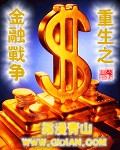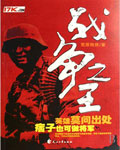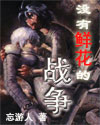战争与和平(下)-第17部分
按键盘上方向键 ← 或 → 可快速上下翻页,按键盘上的 Enter 键可回到本书目录页,按键盘上方向键 ↑ 可回到本页顶部!
————未阅读完?加入书签已便下次继续阅读!
ng from the Gospel of love; do not confirm this hypothesis。
But even admitting that all the cunningly woven arguments with which these histories abound are correct; admitting that nations are governed by some indefinite force called an idea—the essential question of history still remains unanswered; or to the power of monarchs and the influence of counsellors and other persons; introduced by the philosophic historian; another new force is now joined—the idea; the connection of which with the masses demands explanation。 One can understand that Napoleon had power and so an event came to pass; with some effort one can even conceive that Napoleon together with other influences was the cause of an event。 But in what fashion a book; Le Contrat Social; led the French to hack each other to pieces cannot be understood without an explanation of the causal connection of this new force with the event。
There undoubtedly exists a connection between all the people living at one time; and so it is possible to find some sort of connection between the intellectual activity of men and their historical movements; just as one may find a connection between the movements of humanity and commerce; handicrafts; gardening; and anything you like。 But why intellectual activity should be conceived of by the historians of culture as the cause or the expression of a whole historical movement; it is hard to understand。 Historians can only be led to such a conclusion by the following considerations: (1) That history is written by learned men; and so it is natural and agreeable to them to believe that the pursuit of their calling is the basis of the movement of the whole of humanity; just as a similar belief would be natural and agreeable to merchants; agriculturists; or soldiers (such a belief on their part does not find expression simply because merchants and soldiers don’t write history); and (2) that spiritual activity; enlightenment; civilisation; culture; ideas are all vague; indefinite conceptions; under cover of which they can conveniently use phrases having less definite signification; and so easily brought under any theory。
But to say nothing of the inner dignity of histories of this kind (possibly they are of use for some one or for something); the histories of culture; towards which all general histories tend more and more to approximate; are noteworthy from the fact that though they give a serious and detailed analysis of various religious; philosophic; and political doctrines as causes of events; every time they have to describe an actual historical event; as; for instance; the campaign of 1812; they unconsciously describe it as the effect of the exercise of power; frankly saying that that campaign was the work of Napoleon’s will。 In saying this; the historians of culture unconsciously contradict themselves; to prove that the new force they have invented is not the expression of historical events; and that the sole means of explaining history is by that power which they had apparently rejected。
Chapter 3
A STEAM…ENGINE moves。 The question is asked; How is it moved? A peasant answers; It is the devil moving it。 Another man says; The steam…engine moves because the wheels are going round。 A third maintains that the cause of the motion is to be found in the smoke floated from it by the wind。
The peasant’s contention is irrefutable。 To refute him some one must prove to him that there is no devil; or another peasant must explain that it is not a devil; but a German who moves the steamer。 Then from their contradictory views they see that both are wrong。 But the man who says the cause is the movement of the wheels refutes himself; seeing that having once entered on the path of analysis; he ought to proceed further and further along it; he ought to explain the cause of the wheels moving。 And he has not to stop in his search for a cause till he finds the ultimate cause of the movement of the steam…engine in the steam compressed in the boiler。 As for the man who explained the movement of the steam…engine as due to the smoke being blown back from it; he has simply noticed that the wheel explanation was insufficient; and pitching on the first accompanying symptom; gave that out as his cause。
The only conception which can explain the movement of the steamer is the conception of a force equal to the movement that is seen。
The only conception by means of which the movements of nations can be explained is a conception of a force equal to the whole movement of the nations。
Yet under this conception there are included by various historians forces of the most various kinds; and all unequal to the movement that is seen。 Some see in it a force directly pertaining to heroes; as the peasant sees the devil in the steam…engine。 Others; a force resulting from several other forces; like the movement of the wheels; a third class; intellectual influence; like the smoke。
So long as histories are written of individual persons—whether they are C?sars and Alexanders; or Luthers and Voltaires—and not the history of all; without one exception; all the people taking part in an event; there is no possibility of describing the movement of humanity without a conception of a force impelling men to direct their activity to one end。 And the only conception of this kind familiar to historians is power。
This conception is the sole handle by means of which the material of history; as at present expounded; can be dealt with; and the historian who should; like Buckle; break off this handle; without discovering any other means of dealing with historical material; would only be depriving himself of the last chance of dealing with it。 The necessity of the conception of the exercise of power to explain the phenomena of history is most strikingly shown by the very writers of universal history and the history of culture; who; after professedly rejecting the conception of power; inevitably resort to it at every step。
Historical science in relation to the questions of humanity has hitherto been like money in circulation—paper notes and metal coins。 The historical memoirs and histories of separate peoples are like paper money。 They may pass and be accepted; doing their part without mischief to any one; and even being useful; so long as no question arises as to their value。 One has only to forget the question how the will of heroes produces events; and Thiers’s histories will be interesting; instructive; and will; moreover; not be devoid of a certain poetry。 But just as a doubt of the stability of paper money arises; either because from the ease of making it; too much is put into circulation; or because of a desire to replace it by gold; so a doubt of the real value of history of this kind arises either because too many such histories appear; or because some one in the simplicity of his heart asks: By what force did Napoleon do that?—that is; wishes to change the current paper for the pure gold of a true conception。
The writers of general history and the history of culture are like men who; recognising the inconvenience of paper money; should decide to make instead of paper notes; jingling coin of metal not of the density of gold。 And such coin would be jingling coin; and only jingling coin。 A paper note might deceive the ignorant; but coin not of precious metal could deceive no one。 Just as gold is only gold when it is of value; not only for exchange; but also for use; so the writers of universal history will only prove themselves of real value when they are able to answer the essential question of history: What is power? These historians give contradictory answers to this question; while the historians of culture altogether evade it; answering something quite different。 And as counters in imitation of gold can only be used in a community of persons who agree to accept them for gold; or who are ignorant of the true character of gold; so do the historians who do not answer the essential questions of humanity serve for some objects of their own as current coin at the universities and with that crowd of readers—fond of serious reading; as they call it。
Chapter 4
SINCE HISTORY has abandoned the views of the ancients as to the divine subjection of the will of a people to one chosen vessel; and the subjection of the will of that chosen vessel to the Deity; it cannot take a single step without encountering contradictions。 It must choose one of two alternatives: either to return to its old faith in the direct intervention of the Deity in the affairs of humanity; or to find a definite explanation of that force producing historical events that is called power。
To return to the old way is out of the question: the old faith is shattered; and so an explanation must be found of the meaning of power。
Napoleon commanded an army to be raised; and to march out to war。 This conception is so familiar to us; we are so accustomed to this idea that the question why six hundred thousand men go out to fight when Napoleon utters certain words seems meaningless to us。 He had the power; and so the commands he gave were carried out。
This answer is completely satisfactory if we believe that power has been given him from God。 But as soon as we do not accept that; it is essential to define what this power is of one man over others。
This power cannot be that direct power of the physical ascendency of a strong creature over a weak one; that ascendency based on the application or the threat of the application of physical force—like the power of Hercules。 Nor can it be based on the ascendency of moral force; as in the simplicity of their hearts several historians suppose; maintaining that the leading historical figures are heroes—that is; men endowed with a special force of soul and mind called genius。 This power cannot be based on the ascendency of moral force; for; to say nothing of historical heroes; like Napoleon; concerning whose moral qualities opinions greatly differ; history proves to us that neither Louis XI。 nor Metternich; who governed millions of men; had any marked characteristics of moral force; but that they were; on the contrary; in most respects morally weaker than any one of the millions of men they governed。
If the source of power lies not in the physical and not in the moral characteristics of







